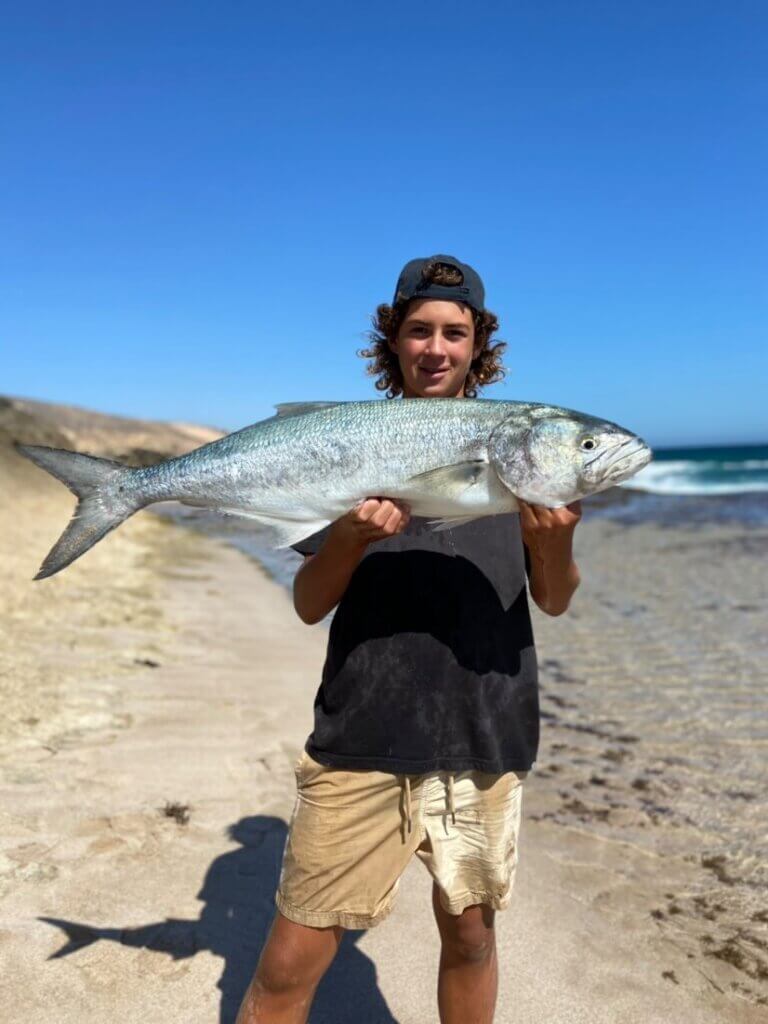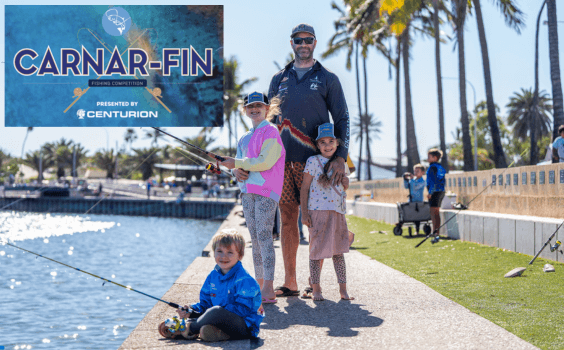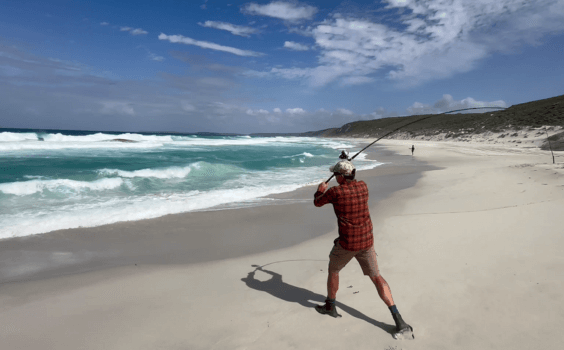From beaches, to rivers and estuaries, tailor are a special species that many WA fishers value dearly, especially for those based along the State’s west coast. In this week’s edition of Scott’s Species, Western Angler editor Scott Coghlan writes about the favourite near-shore species with razor teeth.
Species: Tailor, Pomatomus saltatrix
Eating: 3 stars
ID: Blue-green back and silver underside, the first of their two dorsal fins has many small spines, and strong lower jaw with numerous small teeth.
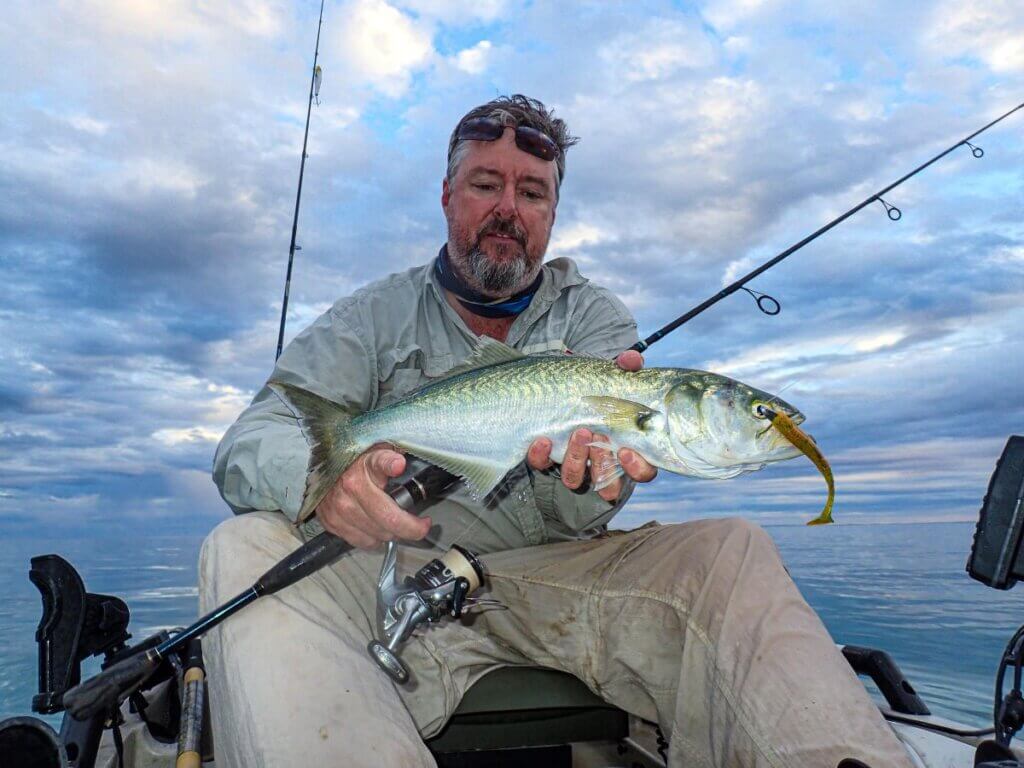
A popular recreational fishing species globally, tailor are primarily an inshore species and are found from Exmouth in WA across the southern side of the country and into lower Queensland on the east coast.
Known as bluefish in the United States, they are an ultra-aggressive opportunistic predator that often travels in schools and a long-time favourite with Australian anglers, especially from the shore.
They grow to 14kg, but fish of that size are very rare in WA and any tailor above 3kg is a ripper.
At the bigger sizes they are known as ‘jumbos’ or ‘green backs’ and 20lb (just over 9kg) has long been the benchmark for a true trophy tailor, while smaller fish are known as choppers.
Recently, a 12.8kg fish was caught in Wilson Inlet by a commercial fisherman. That would have eclipsed the State line caught record from near Steep Point back in 1981.
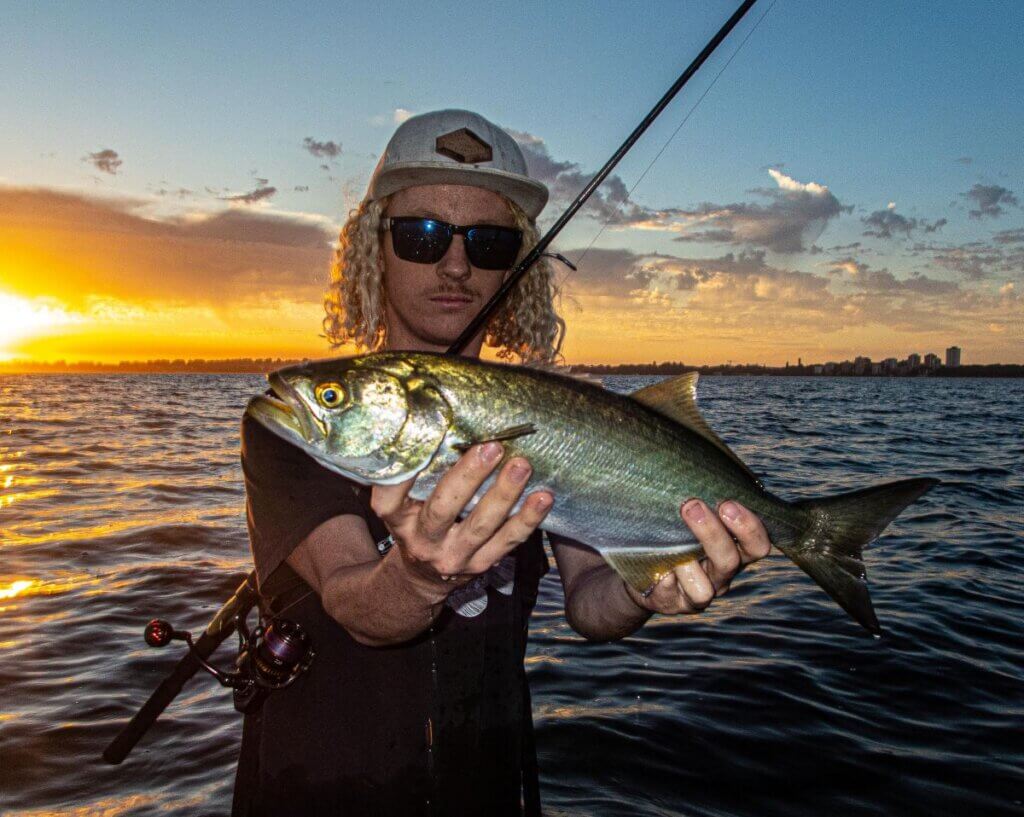
There are certainly some big tailor around Shark Bay and there have been big ones caught around the salt ponds in that area. These fish are not as strong and powerful as ocean fish though.
Dirk Hartog Island is a haunt for giant tailor as are the cliffs near Steep Point. The biggest fish I have seen caught was taken near Steep Point while spinning for pelagics.
Around the Murchison River mouth in Kalbarri is another noted big tailor spot.
Like the Denmark fish mentioned earlier, big tailor also get taken quite regularly along the south coast.
I pulled a jumbo out of a school of salmon on a popper, much to my surprise, east of Esperance many years ago.
Tailor favour periods of low light for hunting their prey and as such dawn and dusk are peak times for catching them.
They will bite at other times of the day, but they are generally most active at sunrise and sunset.
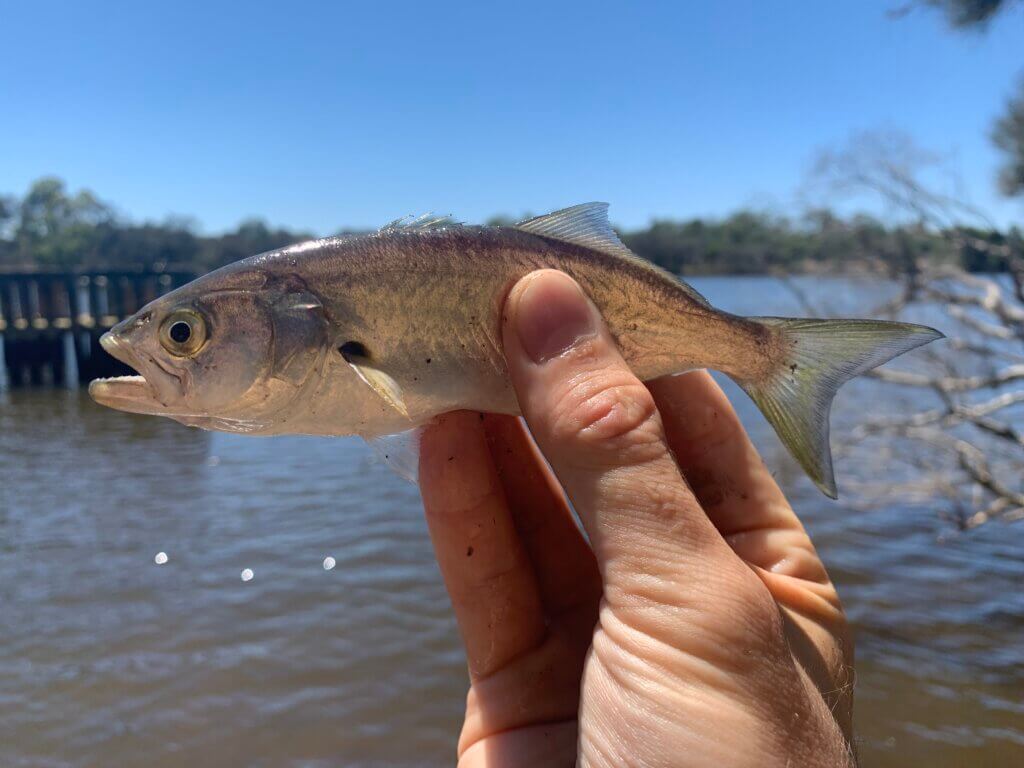
A bit of chop on the water is generally preferable to totally calm conditions, and for metro beaches the arrival of the afternoon sea breeze in summer can be the start of the chopper tailor bite.
They are often found around reefs, where they ambush predators among the chaos of the white water, taking opportunities to feed as they present.
Tailor can be caught from beaches and shore reefs, and also can be found along offshore reefs that feature breaking waves.
Chopper tailor are also caught in big numbers in estuaries and rivers, including the Swan River.
Tailor are generally a light tackle proposition and casting outfits of 4-6kg will do the job, although you may need to upgrade to 10kg-15kg gear for chasing true jumbos.
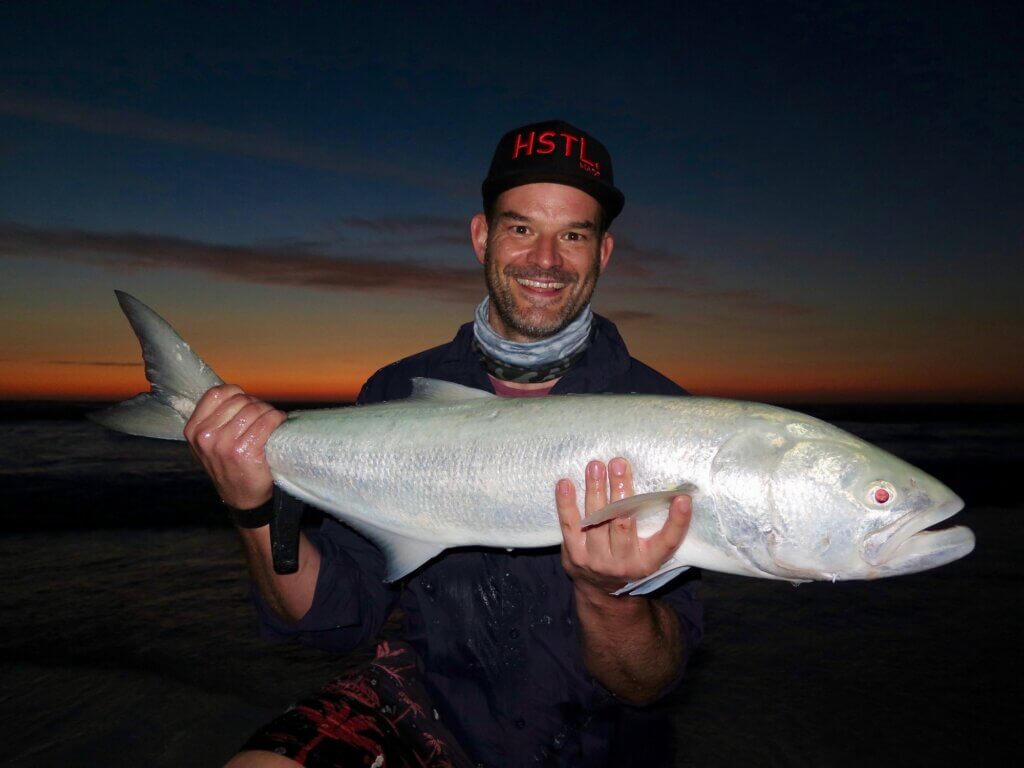
Their sharp teeth means a small length of heavy leader, or even wire, is a good idea to prevent bite-offs and they will happily take baits such as whole of half mulies, whole whitebait, strips of mullet or whole bluebait.
An appropriately sized set of gang hooks should be used to match the bait. Use as much weight as is necessary to get the bait to the fish.
From the beach this could mean a large star or spoon sinker, while from a boat around reef it may mean an unweighted rig.
Big tailor experts like baitcasting whole garfish. They are willing lure takers and will hit metals, minnow lures, stickbaits and poppers with incredible gusto.
They put up a good fight, often jumping when hooked, and usually fight clean, even in reefy areas.
They should be bled immediately after capture if they are to be eaten, and should always be eaten fresh as tailor flesh does not freeze well.
